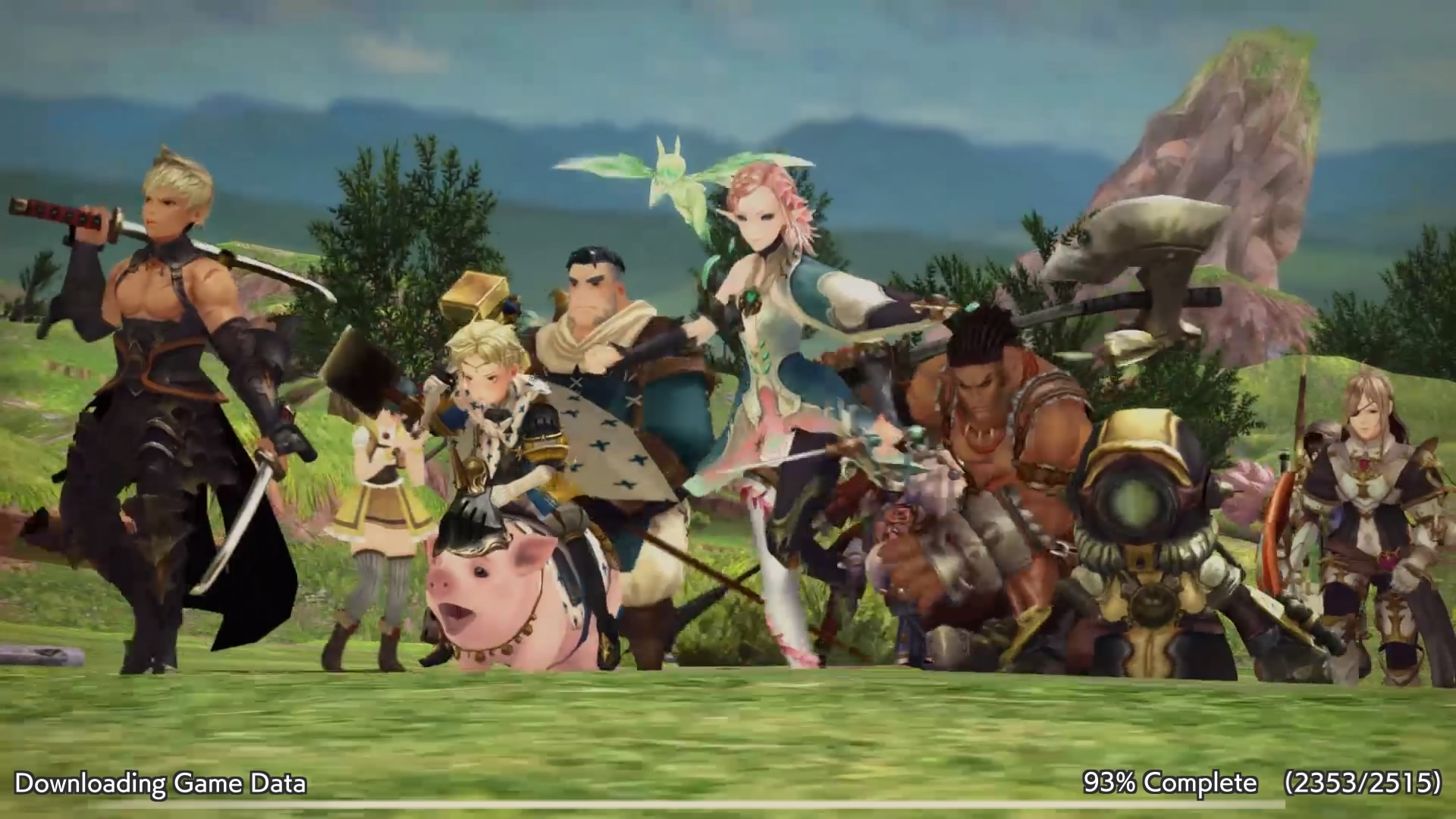
Welcome to Four Winds, Massively OP’s newest column, dedicated to Asian MMOs and the culture around it. As the resident Black Desert columnist, I’m a fan of the game as well as the subgenre it belongs to. There’s something special about Asian MMOs, and I’m eager to explore and uncover what that special sauce is through deep dives, first impressions, and insight on Asian MMOs and the gamers who love them.
I’ve got a passion for Eastern MMORPGs. They just click with me, and no it’s not because I’m Asian. While I was born in the Philippines, I grew up in America. I don’t have any say on people who actually lived and grew up in an Asian country. I specifically like two things: the grind, and jiggle physics a certain “je ne se quoi” unique to these games.
But that doesn’t mean I’m a sucker. I will only sink time when the game in question is well-designed. A good MMORPG is very difficult to design, and I’ve played many that are just plain bad. So it bothers me when people associate bad game design and predatory business practices with this subgenre as “something Asian gamers like” – never mind that “Asian” itself is a loaded term. It’s a negative stereotype, and for this first edition of Four Winds, I aim to dismantle and hopefully reframe this flawed narrative.
Everyone loves well-designed games
I want to stipulate one thing before we begin: Everyone loves well-designed games. It doesn’t matter where the game was developed. A good game is a good game. Ultima Online’s impact on the genre didn’t just set a standard in American MMORPG game design; it established a formula that everyone can and often did follow. Lineage shows that a well-designed grind exists. Black Desert is finally bridging the gap between Korean MMORPG design and mainstream European and North American tastes. And Genshin Impact’s worldwide success proves that a high-quality game can also have a highly profitable monetization method.
When a game is just plain good, it usually becomes more popular and profitable. Sure, there will be detractors. There will always be people who will find BDO’s monetization predatory, and it’s totally fine to be guarded about it, since plenty of MMORPGs have succeeded without that model and there are plenty of games from all genres that show just how low some companies would go to make a buck. It’s completely understandable to maintain a healthy skepticism for any game in this era of excessive monetization.
What isn’t OK is when what looks to be acceptance of those same practices is written off as part of a particular group’s culture. It’s a common question seen on various MMO forums and communities – “why do Asians like pay-to-win so much?” The answers usually end up being some variation of “it’s part of their culture.”
That’s not OK, and moreover, it’s wrong. It’s an outdated perception that Asian cultures (and thus gaming habits) do and accept the opposite of their peers in Europe and the Americas. Nobody likes it when a game leans too far into pay-to-win territory. And just as a good game is good everywhere, bad business practices are bad everywhere.
Getting lost in translation
I’m not trying to make anyone feel guilty. It’s ironic how disconnected gamers from different countries are from each other, but there’s a very real divide. There are two major barriers: language and service. Even with the unprecedented amount of information available through the internet, there are still things we can’t find online. Despite Google’s dominance in America, that’s not the case elsewhere. Kakao has grown to be one of the largest companies in Korea, while Tencent dominates China’s internet scene with WeChat.
Different countries use different search engines, visit different forums, and use different chat programs. I have no reason to use Kakaotalk when all my friends are on Discord. I will watch my videos on YouTube, not NicoNicoDouga. And while I don’t personally use it, Reddit is a major source of information for many English speakers.
And this is huge. While Reddit has been instrumental in putting information in one place, it’s only really used by English speakers. If a person in Korea has a question about Lost Ark, they would most likely use DCinside because that’s the closest thing to it in Korea.
So whenever someone asks, “why do Asians like pay-to-win” on Reddit, any answer will naturally be imperfect information. Most of the answers will be secondhand. The answers will most likely come from someone who doesn’t live there and probably doesn’t have access to (or didn’t bother to look for) information that can answer the question better. Unless someone who genuinely grew up and lived in Korea or China with a deep knowledge of MMORPGs and the industry goes to Reddit to explicitly address the question every time it comes up, we’re usually left with just misguided speculation.
Of course, if we actually focus on how the games are different from region to region rather than how people are different, the answer suddenly becomes painfully obvious.
Games in different regions are monetized differently
Think back to the first MMO you’ve played. Where were you? It probably wasn’t at a PC bang. One of the most distinct features of Asian gaming, especially in Korea, has traditionally been the PC cafe. Heck, it’s been the most popular way to use a computer period. It’s a place with a bunch of high-end computers where people can do whatever they need to do on a computer, especially gaming. Everyone from all walks of life goes there. It’s a legitimate cultural pastime – and a cheap one at that, for around $2 an hour. And just as Costco’s profit comes from the membership and not its sales, the same applies to these PC cafes, which make their money from memberships and special events.
Here in the United States, League of Legends players will need to buy champions with money or unlock them over time. But overseas, some PC cafes provide memberships that allow players full access to the game’s complete roster. In Black Desert, players here in the United States need to build an increased enchantment success through a method called failstacking, which is a complicated process that involves switching characters, and increasing the number by forcefully failing other enhancements. It took me an entire article to explain how it worked. But PC cafes that have special deals with Pearl Abyss that actually award players these failstacks by simply AFK lifeskilling while they’re at their favorite PC bang! I’m not saying that failstacking doesn’t happen in Korean servers, but Korean players certainly have some far more lucrative (and straightforward) alternatives. Of course, giving those special incentives to members isn’t free; Pearl Abyss and Riot Games take a cut of the profit.
The simple answer is that many games built in Asian countries are designed from the start to be played in PC bangs. Companies like Pearl Abyss and Kakao make their money by taking a cut of the PC cafe’s profits for these special benefits. The gaming ecosystem is completely different. Because European and U.S. players primarily play from home, that system doesn’t work as well. And finding that sweet spot between making the game profitable, rewarding, and not an overt money grab is a challenge where solutions are just now starting to pop up.
Hopefully this article helps reframe the discussion around how Asian MMOs are monetized and why developers make the choices they do. But don’t mistake me: I’m not excusing every single MMO. There are a ton of bad Eastern MMOs out there. And some are really terrible money grabs, and yes there’s always going to be a global demographic that loves that stuff. But the people who play those games don’t define an entire continent of humans or one single homogenous culture, let alone gaming culture.
I’m super optimistic about this upcoming decade in MMOs with Lost Ark, Elyon, and Plan 8 on the horizon. There are some really good MMOs coming out of Asia, many of which can be appealing for everyone. It’d be a shame if we let antique stereotypes get in the way.
 The four wind tiles in Mahjong open all sorts of winning combinations for players of this ancient game – and the “Asian” MMO subgenre is just as varied as the many rulesets in Mahjong. Join Massively OP’s Carlo Lacsina here in our Four Winds column as he covers the diverse assembly of MMOs imported from the East!
The four wind tiles in Mahjong open all sorts of winning combinations for players of this ancient game – and the “Asian” MMO subgenre is just as varied as the many rulesets in Mahjong. Join Massively OP’s Carlo Lacsina here in our Four Winds column as he covers the diverse assembly of MMOs imported from the East!
















